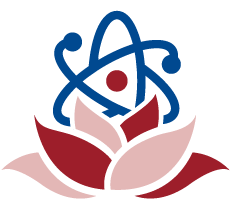| antibacterial སྲིན་འཇོམས། | biol. Destroying or inhibiting the growth of bacteria. | སྲིན་བུའི་འཚར་འཕེལ་བཀག་འགོག་བྱེད་པའམ་རྩ་མེད་དུ་གཏོང་བ། |
| antiangiogenic therapy ཁྲག་རྩ་གསར་འགོག་གསོ་དཔྱད། | biol. Antiangiogenesis therapy is one of two types of drugs in a new class of medicines that restores health by controlling blood vessel growth. | ཁྲག་གི་རྩ་སྦུབས་ཀྱི་འཚར་འཕེལ་ལ་ཚོད་འཛིན་བྱེད་པ་ལ་བརྟེན་ནས་ལུས་ཁམས་གསོ་ཐབས་བྱེད་པའི་སྨན་བཅོས་ཀྱི་སྡེ་ཚན་གསར་པའི་སྨན་རྫས་རིགས་གཉིས་ཡོད་པའི་ནང་གི་གཅིག་ལ་གོ |
| anti-tumor སྐྲན་འཇོམས། | biol. preventing or inhibiting the formation or growth of tumors | སྐྲན་ཆགས་ཚུལ་ལམ་སྐྲན་གྱི་འཚར་འཕེལ་སྔོན་འགོག་བྱེད་པའམ་བཀག་འགོག་བྱེད་པ། |
| anti-social behavior སྤྱི་ཚོགས་འགལ་སྤྱོད། | neurosci. Anti-social behavior is the conduct, demeanor, or attitude of a person which is inconsistent with the laws and order of an organized society. | སྒྲིག་འཛུགས་ལྡན་པའི་སྤྱི་ཚོགས་ཤིག་གི་ཁྲིམས་དང་སྒྲིག་གཞི་བཅས་དང་འགལ་བའི་མི་ཞིག་གི་སྤྱོད་ལམ་མམ། རང་གཤིས་སམ། བསམ་བློའི་འཁྱེར་སོ་ལ་གོ |
| anti-realist ཕྱི་དངོས་འགོག་རྒོལ་བ། | phil. | |
| anti-realism ཕྱི་དངོས་འགོག་རྒོལ་རིང་ལུགས། | phil. Anti-realism, in philosophy of science, is in opposition to realist assumptions that ‘real’ reality is apprehensible through sense (e.g., visual, auditory, tactile, gustatory) experience. | བདེན་དོན་དངོས་ནི་དབང་ཚོར་(དཔེར་ན། མཐོང་ཚོར་དང་། ཐོས་ཚོར། རེག་ཚོར། རོ་ཚོར་ལྟ་བུ་) གྱི་ཉམས་མྱོང་བརྒྱུད་ནས་དབང་ཤེས་ཀྱིས་ཚོར་རུང་བར་འདོད་པའི་ཕྱི་དངོས་སྨྲ་བའི་འདོད་ཚུལ་ལ་དགག་པ་བྱེད་པའི་ཚན་རིག་ལྟ་གྲུབ་ཁྲོད་ཀྱི་རིང་ལུགས་ཤིག |
| anti-inflammatory རྨ་འཇོམས། | biol. Preventing or reducing inflammation. | ཚ་སྐྲང་ངམ་རྨ་སྔོན་འགོག་བྱེད་པའམ་ཇེ་ཉུང་དུ་གཏོང་བ། |
| anthropology མི་རིགས་རིག་པ། | neurosci. The scientific study of the origin, the behavior, and the physical, social, and cultural development of humans. | འགྲོ་བ་མིའི་ལུས་པོ་དང། སྤྱི་ཚོགས། རིག་གཞུང་བཅས་ཀྱི་འཕེལ་རྒྱས་དང་། འབྱུང་ཁུངས་དང་གཤིས་སྤྱོད་བཅས་ལ་ཚན་རིག་མཐུན་པའི་སྒོ་ནས་བརྟག་པའི་རིག་པ། |
| Anthropic Principle མི་གཙོ་རྩ་འཛིན། | Biol. | |
| anthrax ཨན་ཐེག་སྲིན་ནད། | biol. A contagious and often fatal disease of animals, including humans, caused by the bacterium Bacillus anthracis. It is acquired by the inhalation of spores or through the skin. | ཨེན་ཐེ་རེག་ནི་འགྲོ་བ་མི་ཐེ་བའི་སེམས་ཅན་རྣམས་ལ་ཨན་ཐེ་རེག་དབྱུག་སྲིན་གྱི་འབུ་ཕྲས་སྐྱེད་ཅིང་ སྐབས་མང་པོར་འཆི་སྐྱོན་འབྱུང་ཉེན་ཆེ་བའི་ནད་ཚབས་ཆེན་ཞིག། འདི་ནི་སོན་ཐལ་རྔུབ་འཐེན་བྱེད་པའམ། ཡང་ན་པགས་པ་བརྒྱུད་ནས་འགོ་ཡི་ཡོད། |
| antheridia (antheridium) ཟེ་དབང་། | biol. The male sex organ of algae, mosses, ferns, fungi, and other non-flowering plants. | ཆུ་བལ་དང་། གྲོག་ཤིང་། ལྡུམ་པོ་རེ་རལ། ཧམ་ཤ་བཅས་དང་། མེ་ཏོག་མེད་པའི་རྩི་ཤིང་གཞན་གྱི་ཕོའི་མཚན་མ་ལ་གོ |
| anther ཟེ་ཏོག | biol. The part of a flower that contains pollen | མེ་ཏོག་གི་ཟེ་རྡུལ་གནས་སའི་ཆ་ཤས་དེ་ལ་གོ |
| anterograde amnesia དྲན་རྒྱུན་ཉམས་ནད། | neurosci. An inability to recall what happened after a traumatic episode. | བྲེད་རྨའི་དོན་རྐྱེན་ཞིག་བྱུང་རྗེས་དེའི་སྔོན་ལ་ཅི་ཞིག་བྱུང་བ་བསྐྱར་དྲན་མི་ནུས་པ། |
| anterior temporal lobe (ATL) རྣ་ལྟག་འདབ་མའི་མདུན་ངོས། | neurosci. | |
| anterior spinal artery མདུན་ངོས་རྒྱུངས་པའི་འཕར་རྩ། | biol. An artery that originates within the cranial cavity and passes inferiorly along the surface of the spinal cord. | ཐོད་རུས་ཁུང་བུའི་ནང་ནས་བྱུང་ཞིང། རྒྱུངས་པའི་ཕྱི་ངོས་ཀྱི་གཤམ་འོག་ན་ཡོད་པའི་འཕར་རྩ་ཞིག |
